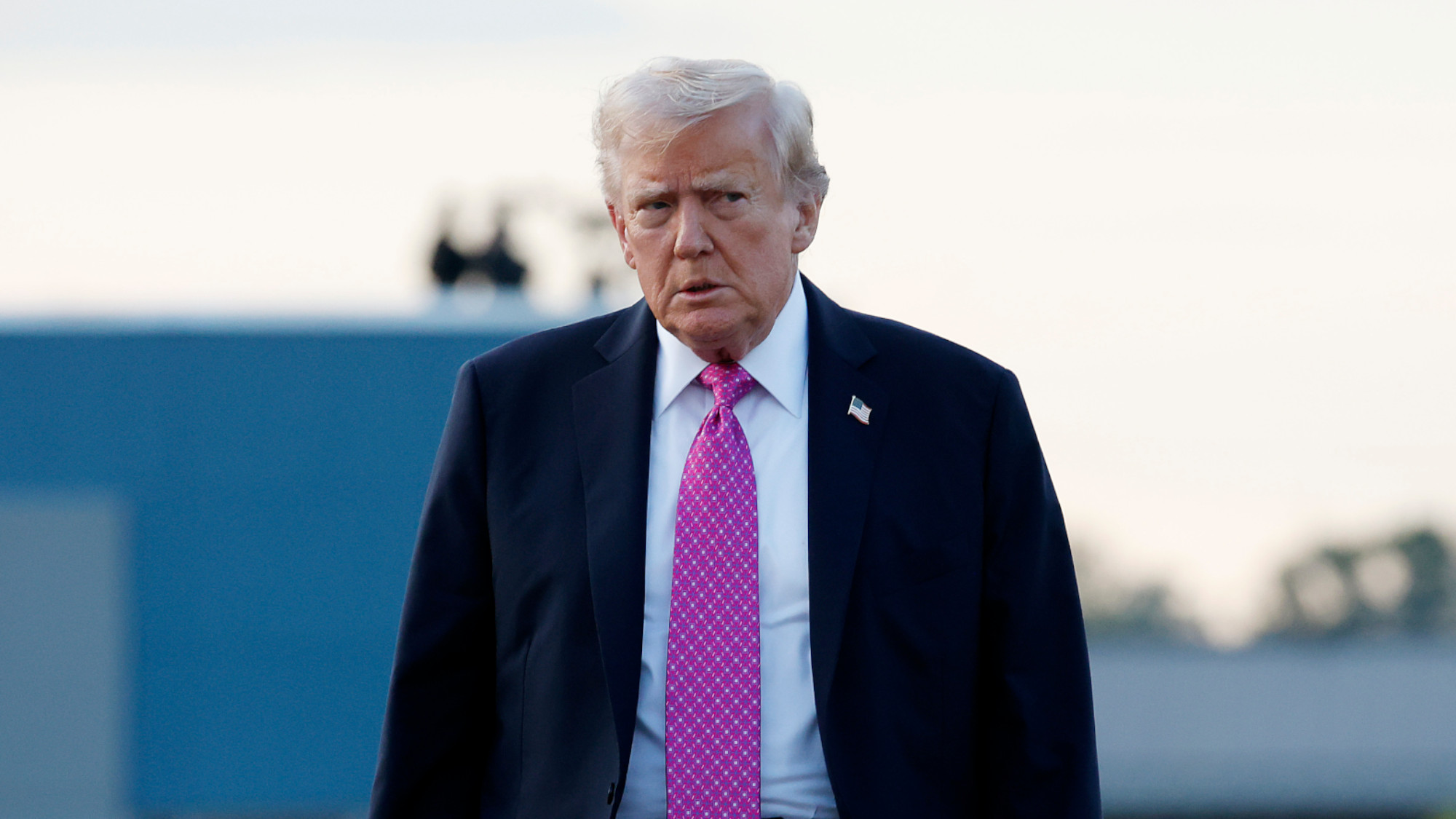Supreme Court: Will it allow Trump’s tariffs?
Justices fast-track Trump’s appeal to see if his sweeping tariffs are unconstitutional

A free daily email with the biggest news stories of the day – and the best features from TheWeek.com
You are now subscribed
Your newsletter sign-up was successful
The Supreme Court will soon face “its most important test” of the Trump era, said Paul Rosenzweig in The Atlantic. The justices agreed to fast-track the Trump administration’s appeal of lower court rulings that found most of his sweeping tariffs to be illegal. Trump slapped levies of up to 50% on nearly 100 countries under the International Emergency Economic Powers Act. But a federal appeals court noted last week in a decision invalidating those tariffs that the 1977 law does not mention the word “tariffs” or synonyms such as “duty” or “tax.” And, the court added, “the power of the purse (including the power to tax) belongs to Congress.” How the conservative-dominated Supreme Court responds to that ruling—stayed until Oct. 14—will be crucial, both for the economy and “the question of presidential authority generally.” If the justices say Trump has overstepped, it will mark their first significant attempt to restrain him. If they don’t, they will signal “the court’s complete abdication of review authority” and the demolition of our constitutional system of checks and balances.
Because the Trump administration is operating on “very weak” legal footing, it’s relying on what could be called “the Chicken Little Defense,” said Ankush Khardori in Politico. Trump has warned that the revocation of his signature economic policy would spell “total disaster” for the U.S., while Treasury Secretary Scott Bessent has said the government would be forced to refund up to $1 trillion to importers. That argument shouldn’t sway the Supreme Court, said Andrew C. McCarthy in National Review, but a Trump loss is no “slam dunk.” The appeals court ruled against the White House 7-4, but three judges in the majority said tariffs are allowed under the IEEPA because it lets the president “regulate” imports; those judges simply opposed “the arbitrariness and scope of the Trump tariffs.” That gives Trump a slim path to victory at the Supreme Court.
Recent precedent should rule out such a win, said Eric Boehm in Reason. When the Supreme Court struck down President Joe Biden’s student loan forgiveness program in 2023, it leaned on the so-called major questions doctrine, which states that on matters of “vast economic and political significance,” the executive can exercise only powers unambiguously granted by Congress. Those constraints clearly apply here. The question is whether the justices will stick to their supposed principles or find “yet another escape hatch for Trump,” said Matt Ford in The New Republic. Very soon, we’ll discover whether the major questions doctrine was devised only to “constrain Democratic presidents.”
The Week
Escape your echo chamber. Get the facts behind the news, plus analysis from multiple perspectives.

Sign up for The Week's Free Newsletters
From our morning news briefing to a weekly Good News Newsletter, get the best of The Week delivered directly to your inbox.
From our morning news briefing to a weekly Good News Newsletter, get the best of The Week delivered directly to your inbox.
A free daily email with the biggest news stories of the day – and the best features from TheWeek.com